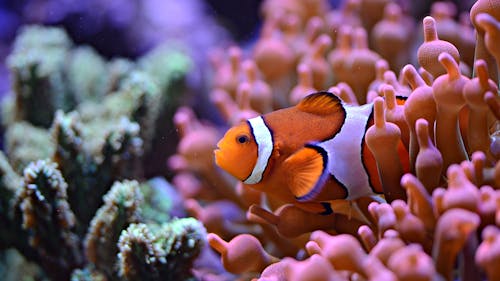Species range shifts may be unpredictable due to climate change, other factors, new Rutgers study says

A recent study conducted by researchers at the University explored how body size and food web interactions affect global warming-related shifts in species ranges, the areas in which particular species can be found during their lives.
Ed Tekwa, a postdoctoral researcher with the Department of Ecology, Evolution and Natural Resources and contributor to the study, said that it was conducted on approximately 200 marine species and explored how food webs affect migration patterns.
Though the study had many moving parts, it helped researchers understand how these complex ecological interactions occur with climate change, they said.
They said that previously, it was believed that certain species may take more time to adapt due to limited mobility and slow growth or dispersal rates. Using a food-web model, this study found that interactions between various species in the web also cause delays in this process.
“If you think about it, species can't just move on their own to track climate, they have to also find food and avoid predators,” Tekwa said. “So some of these complex interactions are what's holding up almost all the species in the food web and slowing down that shift.”
They said that shifting animals may do so at different rates because they may run into issues of resource availability or becoming prey for other species wherever they move. These issues also differ by the body size of the animal, Tekwa said.
The study also showed that larger animals tend to lag behind smaller ones. For example, Tekwa said that the Blue Whiting, a half-kilogram fish, has had a larger shift than the Pacific Cod, which is a 12-kilogram fish.
These findings tie directly to climate change because while the planet is projected to keep warming, it will be difficult to track species migration, Tekwa said. As such, the animal populations that are abundant today may not be the same species that will be abundant by the end of the century.
They said that these findings also mean that climate change policies must look beyond the conservation of individual species in favor of considering the impact on ecosystems as a whole.
“A lot of conservation focus has been on single species,” they said. “Fisheries also tend to focus on a single species. And so, this study shows those interactions between species actually have a big consequence, on range shift on where we expect to find these species to move.”
They said that while people have been talking about the ecosystem approach for a few decades, environmental management still tends to be focused on singular species. Since the University is leading many others in studying the interactions of marine communities and climate change, it is in a good position to inform climate policymakers through an ecosystem approach, they said.
The study also offers a more holistic approach to studying individual species and allows policymakers to anticipate where species will shift, Tekwa said.
In particular, they said that current Marine Protection Areas will become obsolete as animals shift and that management tactics will need to become more dynamic.
Tekwa also mentioned that the project will continue to examine how warming impacts other areas of the community, such as biodiversity, as well as how ecosystems function.
“Those are open questions that I think will be really important as we try to tackle this climate crisis,” they said.



